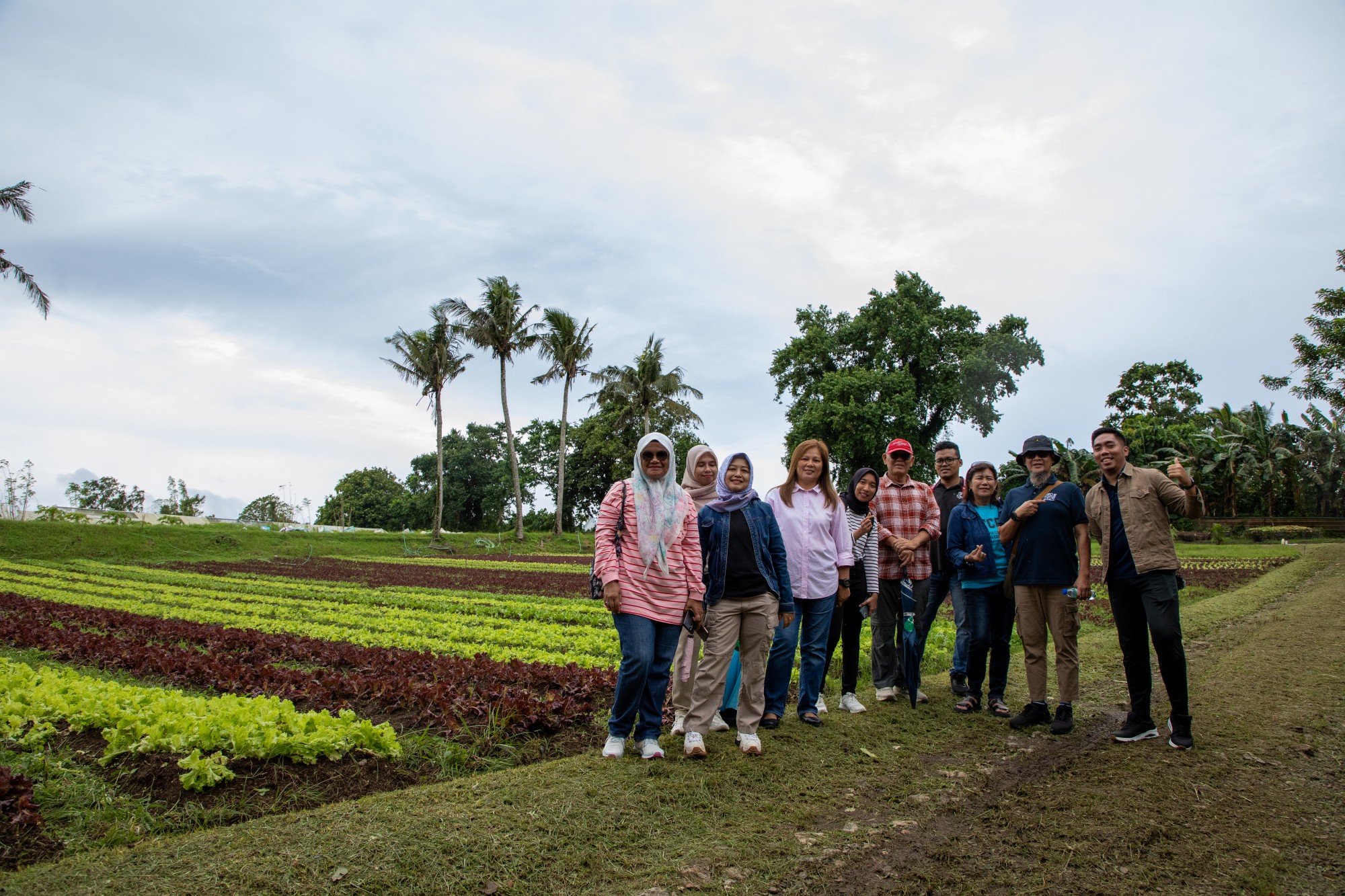IRRI hosts PH-Indonesia cross-learning exchange to strengthen extension, agri-input programs
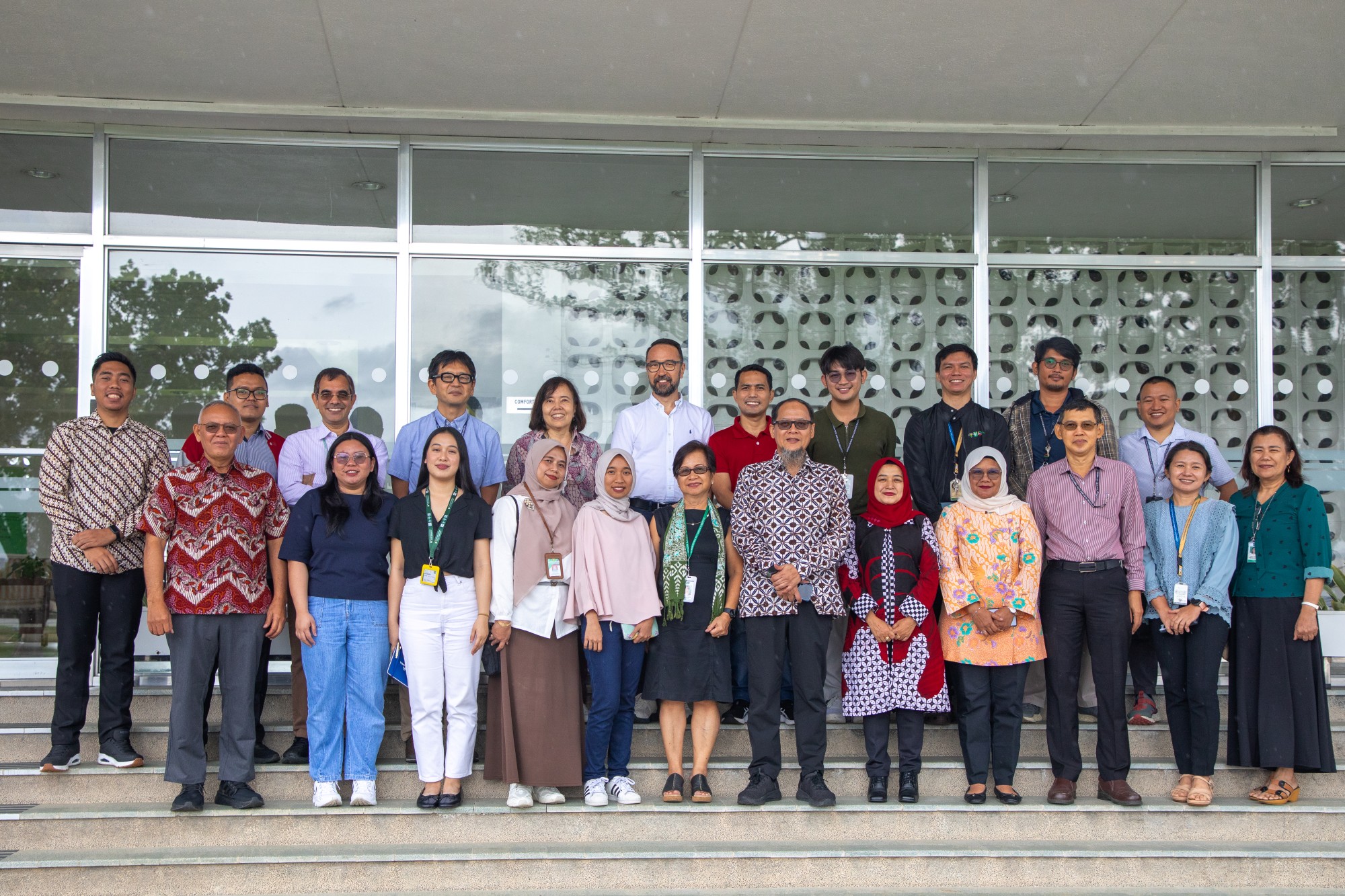
Building stronger South-South ties in agriculture, the International Rice Research Institute (IRRI), through the Rice Crop Manager (RCM)-Indonesia project, recently hosted a Philippines-Indonesia Cross-Learning Exchange to advance both countries’ extension services and fertilizer and pesticide management initiatives.
The exchange provided a platform for national agricultural agencies to exchange experiences and enhance their services and programs—a work aligned with IRRI’s 2025-2030 strategy in leveraging South–South pathways to facilitate knowledge exchange and instrumental in scaling proven innovations such as the Layanan Konsultasi Padi (LKP) in Indonesia or Rice Crop Manager Advisory Service (RCMAS) in the Philippines.
The Indonesian delegation included officials and representatives from the Ministry of Agriculture’s (MoA) National Agency for Agricultural Extension and Human Resource Development (BPPSDMP) and Directorate of Agricultural Infrastructure and Facilities, as well as the National Research and Innovation Agency (BRIN).
“Through the RCM-Indonesia project, we have built strong collaboration with our Indonesian partners. As we move toward its close, we see this exchange as an opportunity to discuss the way forward and build on the success we’ve achieved through it,” said IRRI Senior Scientist and RCM-Indonesia Project Leader Dr. Madonna Casimero.
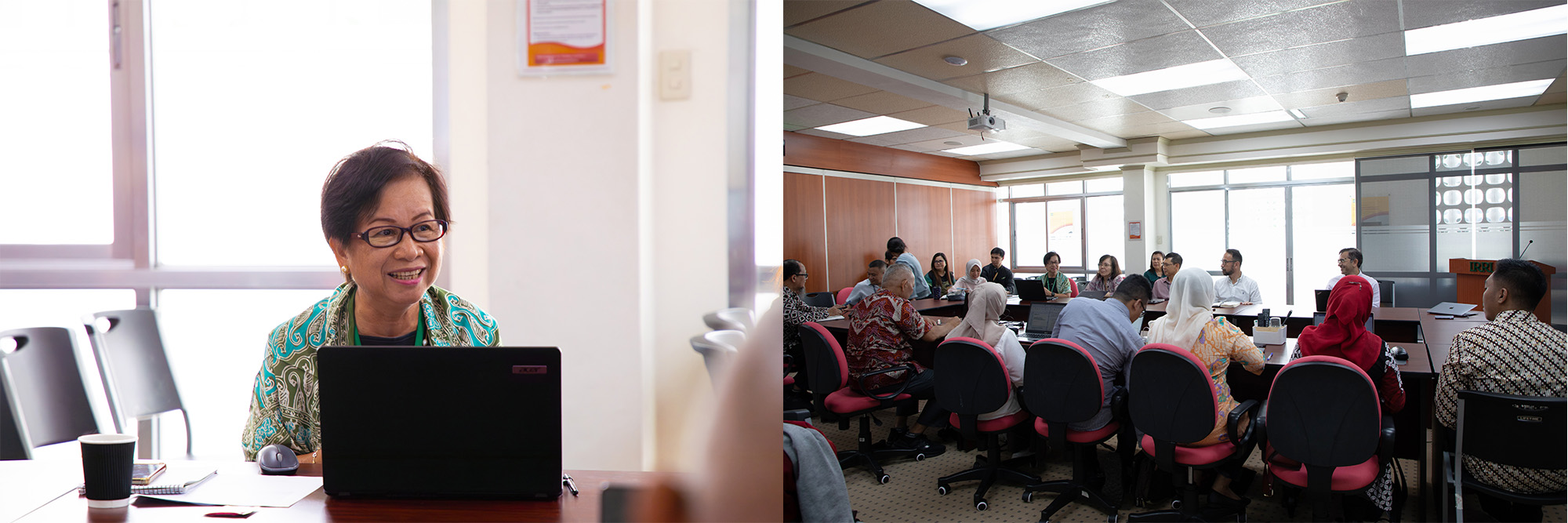
At the IRRI Headquarters, participants engaged in knowledge sessions on IRRI’s strategic directions and their respective agencies’ mandates. They also joined guided tours of the Institute’s key research facilities and experiment sites.
As part of the visit, the Indonesian delegation and the IRRI team led by Mr. Benedict Jardinero, RCM-Indonesia Project Manager, met with agencies under the Philippines’ Department of Agriculture (DA), including the Agricultural Training Institute (DA-ATI), the Fertilizer and Pesticide Authority (DA-FPA), and the DA National Rice Program.
Discussions centered on capacity-building initiatives, optimizing manpower deployment, government subsidy programs, extension delivery mechanisms, and strategies to strengthen farmer adoption of digital tools and technologies.
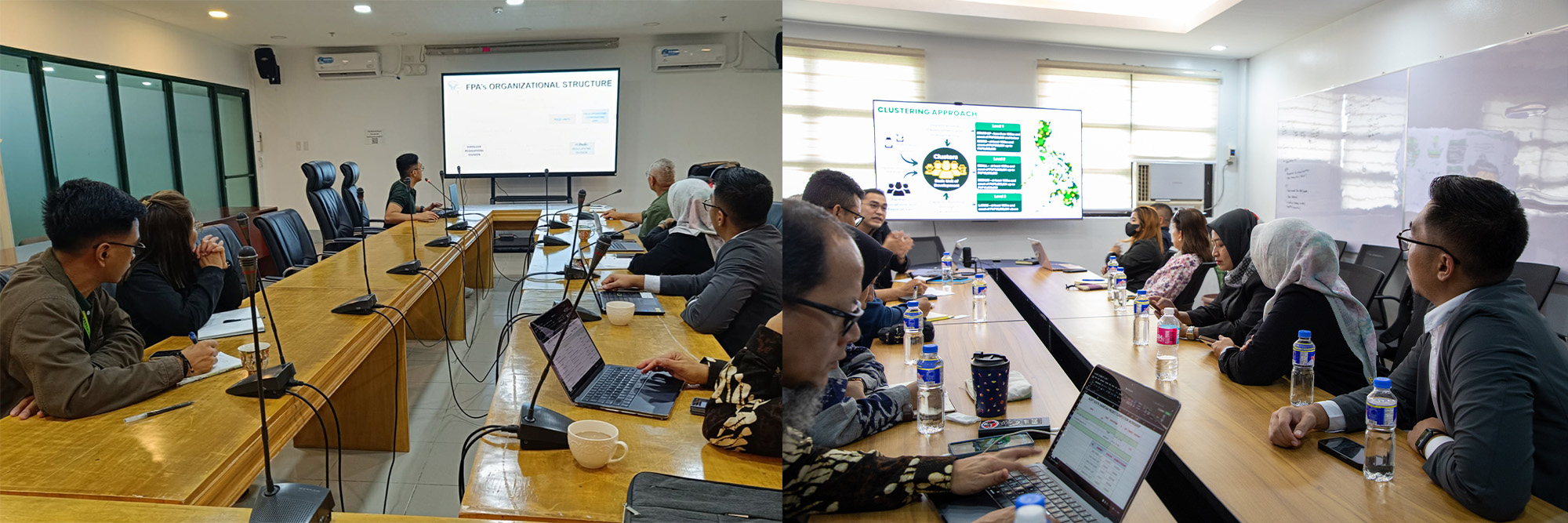
“This collaborative learning created opportunities to explore how research and innovation can be more effectively integrated into national agricultural policies,” said Prof. Ir. Hasil Sembiring, Senior Advisor to the Indonesia MoA for Food Production and Senior Researcher at BRIN.
Reflecting on the discussions with DA-ATI, Ms. Aldilani Si of BPPSDMP emphasized the role of digital tools in supporting extension workers. “Extension workers are at the frontlines of agricultural transformation, and tools like LKP 2.0 can empower them with science-based recommendations that improve productivity, efficiency, and farmer confidence,” she emphasized.
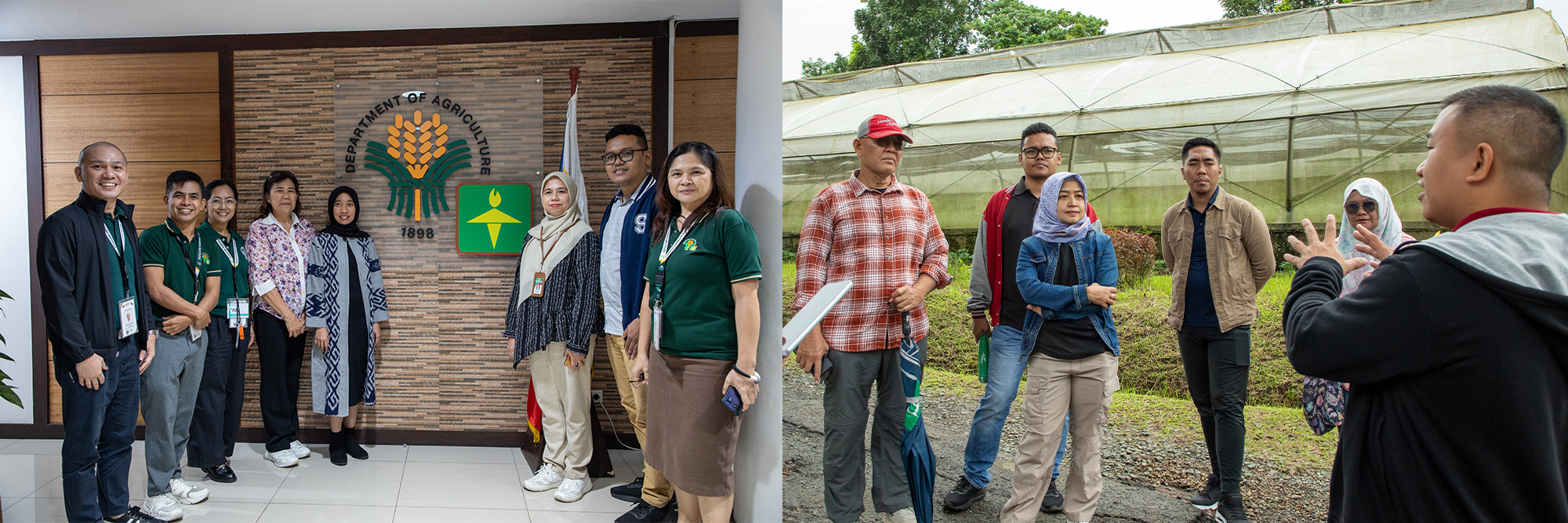
The exchange was concluded with a visit to Gourmet Farms, one of the 1,899 learning sites for agriculture under DA-ATI, which offers hands-on training and technology transfer to farmers, students, and aspiring agricultural professionals.
“The knowledge exchange between IRRI and the Government of Indonesia has been truly invaluable. Through this dialogue, we were able to align our national priorities, such as food self-sufficiency, sustainable agricultural practices, and the development of climate-resilient rice systems, with IRRI’s global expertise and innovations.” Prof. Sembiring said.
